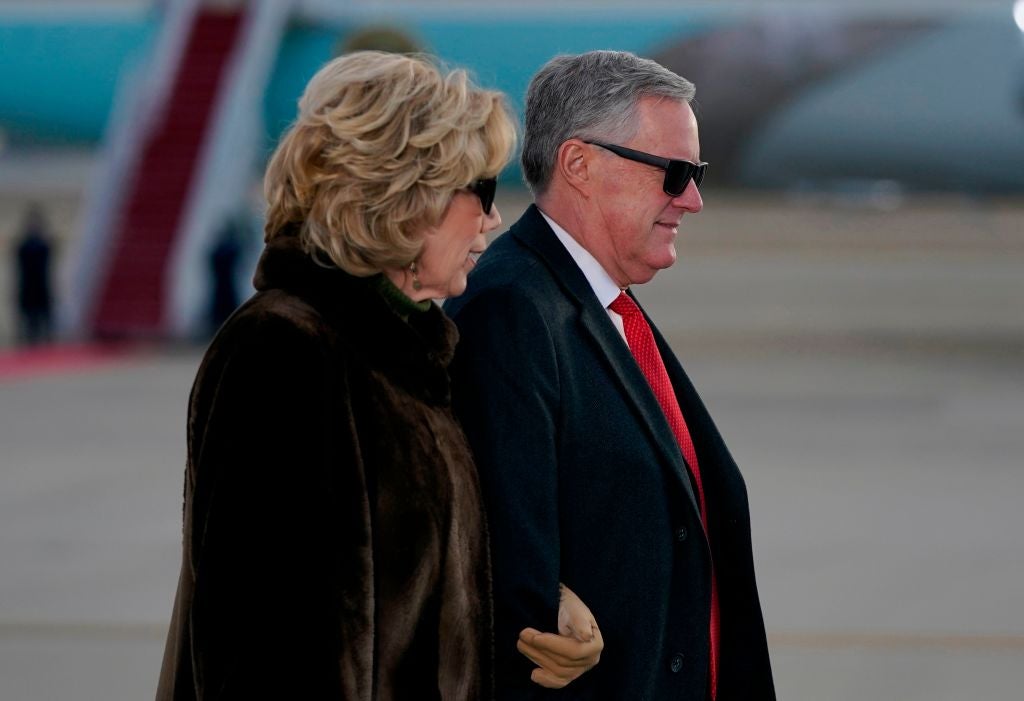Capitol riot: Mark Meadows will stop cooperating after committee gets communication records
Mr Meadows could now face charges for criminal contempt of Congress
Your support helps us to tell the story
From reproductive rights to climate change to Big Tech, The Independent is on the ground when the story is developing. Whether it's investigating the financials of Elon Musk's pro-Trump PAC or producing our latest documentary, 'The A Word', which shines a light on the American women fighting for reproductive rights, we know how important it is to parse out the facts from the messaging.
At such a critical moment in US history, we need reporters on the ground. Your donation allows us to keep sending journalists to speak to both sides of the story.
The Independent is trusted by Americans across the entire political spectrum. And unlike many other quality news outlets, we choose not to lock Americans out of our reporting and analysis with paywalls. We believe quality journalism should be available to everyone, paid for by those who can afford it.
Your support makes all the difference.Former White House chief of staff Mark Meadows has halted any cooperation with the House select committee investigating the 6 January insurrection, his attorney has said.
“Over the last several weeks, Mr Meadows has consistently sought in good faith to pursue an accommodation with the Select Committee and up until yesterday we believed that could be obtained,” Meadows attorney George Terwilliger wrote in a letter to the the committee, which was first reported by CNN.
Mr Terwilliger added that he and his client had “agreed to provide thousands of pages of responsive documents” and appear “voluntarily” for a deposition to answer questions “about non-privileged matters,” but an appearance was now “untenable” because of “actions by the select committee”.
Specifically, Mr Terwilliger said that Mr Meadows’ decision was made after learning that the committee had “issued wide ranging subpoenas for information from a third party communications provider”.

“In short, we now have every indication from the information supplied to us last Friday – upon which Mr. Meadows could expect to be questioned – that the Select Committee has no intention of respecting boundaries concerning Executive Privilege,” he wrote. “As a result of careful and deliberate consideration of these factors, we now must decline the opportunity to appear voluntarily for a deposition.”
Mr Meadows and other senior Trump administration figures routinely used private mobile phones and email accounts in violation of federal record-keeping laws.
In a statement last month, select committee chair Bennie Thompson and vice chair Liz Cheney said the former North Carolina congressman had refused to answer “even the most basic questions, including whether he was using a private cell phone to communicate on January 6th, and where his text messages from that day are”.
Mr Meadows had previously agreed to cooperate with the committee in hopes of staving off the possibility that the body in which he once served would cite him for contempt and refer him for criminal prosecution. The committee has issued two such citations – to former White House chief strategist Steve Bannon and ex-justice department official Jeffrey Clark. A District of Columbia grand jury indicted Mr Bannon on two counts of criminal contempt of congress last month, while Mr Clark’s citation is on hold pending his appearance for a deposition later this month.
Mr Bannon, Mr Clark, and Mr Meadows have all claimed that some or all of the information the committee wants from them is protected by executive privilege, a legal doctrine which shields communications between and among a president and his advisers.
But the current executive, President Joe Biden, has declined to assert any such privilege over communications or records from Mr Trump or ex-Trump administration officials, citing what White House press secretary Jen Psaki has called the “unique and extraordinary” circumstances presented by the events of 6 January.
In a letter sent to Mr Terwilliger last month, White House deputy counsel Jonathan Su informed the attorney that Mr Biden would not be asserting any privileges or immunities over anything requested by the committee.
While Mr Terwilliger wrote that Mr Meadows would not be appearing for a deposition despite being under subpoena, he suggested that his client would be willing to “consider an interrogatory process of Select Committee written questions and answers” rather than testify in person.
Representatives for Mr Meadows and for the select committee did not immediately respond to requests for comment from The Independent.

Join our commenting forum
Join thought-provoking conversations, follow other Independent readers and see their replies
Comments